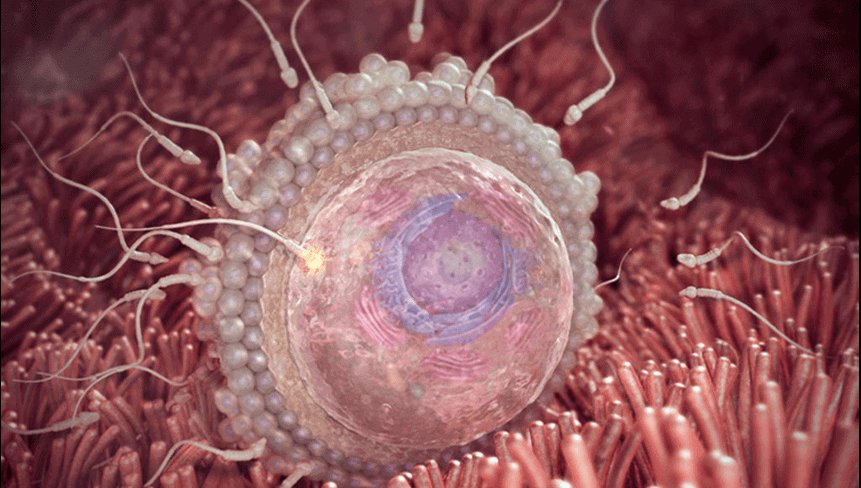Delve into the captivating journey of life as it begins to blossom in just two weeks of pregnancy. This early stage is brimming with remarkable transformations, both for mother and child, and marks the commencement of one of nature’s most astonishing marvels—fetal development. Our comprehensive guide unravels the process along with shedding light on what budding symptoms you can expect. Uncover the secrets of your body’s extraordinary capabilities and the intricate milestones your tiny miracle achieves even in these initial stages. This isn’t just information; it’s a celebration of the incredible maternal journey you’ve endeavored upon. It’s time to embrace the magic within! Every surprise might not be anticipated, but every change is a testament of life beginning to unfurl.
At 2 weeks pregnant, you may not yet be experiencing pregnancy symptoms as conception typically occurs around this time. However, internally, your body is preparing for fertilization and implantation. It’s important to note that the term “2 weeks pregnant” is often used colloquially and refers to the time since the first day of your last menstrual period. Medically speaking, if you have just confirmed your pregnancy, you would likely be closer to 3-4 weeks pregnant based on this calculation.
Table of Contents
2 Weeks Pregnancy: Understanding Fertilization
Congratulations, you’re now officially two weeks pregnant! However, while it might be surprising to consider yourself pregnant so soon after your period, what you’re really measuring here is the time since the first day of your last menstrual cycle. In reality, conception probably happened just a week ago or even less.
It’s important to understand that fertilization, which is the joining of a sperm and an egg to form a single cell (a zygote), usually happens around ovulation – when one of the ovaries release an egg into the fallopian tube. This typically occurs between days 11 and 21 of a woman’s menstrual cycle, with day 1 being the first day of their period.
The Journey of Sperm to Egg
Fertilization occurs when one healthy sperm penetrates the egg within 24 hours after ovulation. Only about 400 sperm out of 250 million survive the journey to the egg, which is why it can be challenging for some couples to conceive. But how does this journey unfold?
The sperm have to travel through the woman’s cervix and uterus before reaching the fallopian tube where fertilization usually occurs. Along this journey, several obstacles stand in their way, such as cervical mucus that filters out weak or abnormal sperm. Researchers believe that some healthy sperm may also use chemical signaling to help them find their way towards the released egg.
Once inside the fallopian tube, contractions in its muscular walls help move the sperm along towards the egg. Finally, only a few dozen strong swimmers reach the vicinity of the egg. At this point, various signals help guide them towards the egg’s surrounding layers.
Think of it like trying to find a needle in a haystack – only a few lucky ones end up succeeding in penetrating through.
- Fertilization is a complex process that involves the journey of sperm through the female reproductive system to reach and penetrate the egg. In order to successfully fertilize the egg, only a small number of strong and healthy sperm out of millions make it through various obstacles along the way. This highlights the challenges some couples face in conceiving and emphasizes the importance of understanding the intricacies of the fertilization process.
Genetic Merging & Sex Determination
Once the egg is fertilized by a sperm, genetic material from both parents starts merging, laying the foundation for fetal development. While an equal number of chromosomes are contributed by each parent, the particular sperm cell responsible for fertilization will determine whether the baby is male or female. If it carries an X chromosome, it will lead to a girl, while if there’s a Y chromosome present, it indicates a boy. This process occurs within the 10-30 hours post-fertilization as the zygote travels towards the uterus. Within three to four days, the blastocyst will have reached its destination and begun burrowing into the uterine lining.
Think of it like a game of chance; just as rolling different numbers on a dice determines an outcome, having either an X or Y-carrying sperm fertilize an egg will determine a baby’s sex.
Early Pregnancy Symptoms
Every pregnancy journey is unique; however, several early pregnancy symptoms are common among women. At two weeks pregnant (measured from conception), most women may not even be aware they’re pregnant yet since confirmation typically comes much later.
It’s during this time that ovulation occurs and successful fertilization takes place as discussed earlier. Some women might experience slippery cervical mucus, mild cramping known as mittelschmerz. An increase in sex drive might also be noticed due to hormonal changes at this stage.
Pregnant women might experience heightened sensitivity to smell that leaves them gagging at specific odors around five weeks after conception. Nausea could start soon after in some women before gaining clarity on the pregnancy status through positive tests.
It’s worth noting that these symptoms might differ significantly from woman to woman based on various factors such as hormone levels and individual health. It’s essential to understand your body and pay attention to any unusual changes to your usual routine.
Having understood what early pregnancy symptoms are, let’s now explore physical and emotional changes that could happen during this time.
- Medically, “2 weeks pregnant” usually refers to two weeks post the first day of a woman’s last menstrual period, meaning actual conception hasn’t likely occurred yet.
- According to a 2010 research study from Duke University, only about 400 out of an estimated 250 million sperm navigate their way successfully to fertilize an egg during ovulation.
- A report by American Pregnancy Association suggests that tracking basal body temperature and monitoring cervical changes can potentially help in determining fertility and ovulation which is typically the case around “2 weeks”.
Physical and Emotional Changes
Congratulations! You’ve taken the first step in starting your journey into parenthood. At two weeks pregnant, you may not feel or see physical changes yet, but a lot is happening in your body. Your hormones are fluctuating, your uterus is preparing to host a fertilized egg, and you may notice minor physical changes such as cervical mucus becoming more slippery. However, pregnancy symptoms during week 2 typically manifest more on an emotional level. This could include heightening of senses (particularly smells), increased sex drive, and heightened anxiety or excitement.
As you progress through pregnancy, it’s essential to keep track of the physical and emotional changes that occur. Ensuring that each symptom or underlying health condition receives proper healthcare is crucial for maintaining both maternal and fetal wellbeing.
Confirming Pregnancy: Tools and Techniques
Even though it’s common to colloquially refer to two weeks past conception as “2 weeks pregnant,” medically speaking, conception occurs approximately 14 days after the first day of your last menstrual period (LMP). Thus one can confirm their pregnancy by taking a home pregnancy test (HPT) around the time of their next missed period, which usually falls at about four weeks from LMP. HPT tests detect the presence of human chorionic gonadotropin (hCG), that increases rapidly in early pregnancy.
False positives are incredibly rare. However, false negatives are still possible if testing too early before detectable levels of hCG arise. It’s best to retest again after a few days if shown negative results earlier.
It’s also worth noting that there are other ways to confirm a suspected pregnancy, including with a doctor-administered urine test or blood test. Early detection can allow for prompt care, advice on lifestyle adjustments and appointment scheduling assistance.
With the confirmation of pregnancy come many preparations and expectations that need to be met, which we cover below.
Preparing For Pregnancy Journey
If you’re planning for a baby and want the journey to be as smooth as possible, it’s essential to start preparing ahead of time. Proper preparation can help ensure both you and your future baby enjoy optimal health throughout the pregnancy tenure. Here are some things you may need to put into consideration:
1. Schedule an appointment with your doctor It’s critical to prepare for a pregnancy journey by scheduling an appointment with your healthcare professional. The doctor will perform a full medical examination and advise on any specific changes necessary, such as lifestyle modifications or supplements.
2. Begin taking prenatal vitamins Before becoming pregnant, it’s wise to start taking prenatal vitamins that contain folic acid. Folic acid is crucial for various reasons- for example, it reduces the risk of a variety of birth defects in babies, including spina bifida.
3. Get familiar with your menstrual cycle As mentioned earlier, pregnancy usually occurs two weeks after the start of ovulation; therefore, understanding your menstrual cycle can be helpful when planning for a pregnancy. Using over-the-counter ovulation detection kits can help determine when you’ve ovulated and thus plan sexual intercourse accordingly.
4. Review medications and herbal supplements with your doctor Some medications are not safe during pregnancy, so it’s wise to review prescriptions, over-the-counter drugs, supplements or herbs that you’re presently taking with your doctor before attempting to conceive.
5. Consider genetic counseling Genetic counseling involves identifying potential underlying genetic issues that may affect a baby’s health later on in life. It applies primarily if you have family history or are at high risk of certain conditions like cystic fibrosis or thalassemia.
6. Prepare emotionally Pregnancy journeys can be both exciting and stressful at the same time. It would help if you were emotionally prepared for the potential changes that pregnancy may bring to you and your partner’s lifestyle.
Remember, It’s essential to make conscious choices by maintaining a healthy diet, getting sufficient exercise, and quitting unhealthy habits like alcohol consumption, smoking or drug use when planning for pregnancy. Ultimately, remember to maintain open communication with your doctor throughout the journey.

Elizabeth Baker is a mother of three, wife, and the passionate mind behind this pregnancy and baby development resource. She balances her love for understanding every stage of child growth with her duties as a parent. When she’s not sharing her experiences or studying child development, Sarah enjoys family time, reading, and practicing yoga. She believes in the power of shared knowledge to enhance the beautiful journey of parenthood. Read more About me.
